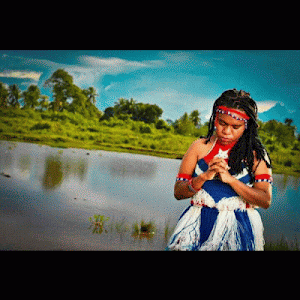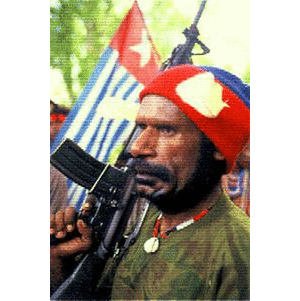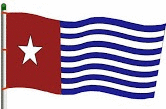 |
| Free West Papua Campaign in South Africa by Mr Benny Wenda (ULMWP) |
By
Joshua Maserow
On
17 February Equal Education hosted a talk by Benny Wenda of the Free West Papua
Campaign at the Wits School of Education. He is in South Africa to spread
awareness about the West Papuan fight against Indonesian colonialism and gross
human rights abuses of the West Papuan people. He said he was also here to
"learn how [South African] leaders fought against apartheid, for justice
and against [racial] discrimination."
Doron
Isaacs, deputy general secretary of Equal Education opened the proceedings -
which were attended my Wits students, members of the PAC and Equal Education
staff and members - remarking that EE has a tradition of supporting campaigns,
irrespective of locality, which fight oppression under the banner of social
justice. He stated that national borders, which are largely constructs of human
history, although separating us geographically do not separate us as human
beings. He hoped that 'in a small way we can assist in the struggle' to free
West Papua from the internecine oppression of Indonesia.
Wenda
is a political exile residing in the UK. He escaped prison, and the sustained
threat made on his life by the oppressive forces of the occupying Indonesian
militia in his native West Papua (three attempts were made on his life while in
prison by Indonesian military men). He eventually broke through a ventilation
shaft and jumped the wall of the prison in which he was held. After a two week
journey on foot through the dense West Papuan forests, he acquired a fake
passport and escaped to the UK where he helped form the Free West Papua
Campaign and International Parliamentarians for West Papua (IPWP).
He
is a founder and spokesperson for the Free West Papua Campaign, founded in
2004, which strives 'to give the people of West Papua the freedom to choose their
own destiny through a fair and transparent referendum - a freedom they have
always been denied'. According to Wenda there is a total ban on media coverage
of West Papuan life: 'On every corner there is a military man holding a gun',
preventing local people from documenting, and disseminating to the rest of the
world, the atrocities committed on their friends and family.
Wenda,
the chief of the largest West Papuan tribe - the Lanu tribe - said that he was
honoured to be in South Africa among young people who have political freedom,
freedom from discrimination based on race, and access to education -
fundamental rights which the children of West Papua are denied. 'We never
learned the map of the world, only the map of West Papua up to Indonesia... .I
never learned about my mountains, my rivers... .they [Indonesian authorities]
the names of everything', he said. West Papuan culture and identity was
brutally suppressed and wrested away from its people.
He
began his talk with a song, called the 'cry song' which is about West Papuan
'land, culture, identity and their way of life'. The song has been banned in
West Papua where raising the national flag, 'morning star', carries with it a
15 year jail sentence. Regaled in traditional attire of the Lanu tribe he ended
the final notes of the song for freedom by saying I am 'fighting for who I am
and who we are... .This is who I am'.
According
to Wenda, West Papuans are regularly abused (he told the story of a 50 year old
man who had his genitals burnt by the Indonesian militia), murdered (his uncle
was buried alive) and raped by the Indonesian colonial forces. They are treated
like animals because they are black, he said. He estimates that close to
500,000 West Papuans have been murdered by the Indonesian military since the
beginning of their occupation. Few people around the world know about this
"secret genocide".
He
recounted a personal story of dehumanisation in which, while a student new to
high school, a girl spat in his face on two consecutive days because
"[his] skin was black". He eventually went to university and studied
politics "to fight back".
West
Papua, situated in the Western half of the Island of New Guinea, was a former
colony of the Dutch East Indies but also saw waves of British and German
Colonial rule until it was annexed by a newly independent Indonesia in 1963
under the UN sanctioned New York agreement.
According
to Wenda, under the increasing threat of Indonesia siding with the Soviet Union
during Cold War, the US and UN acceded to Indonesia's desire to take West Papua
into its control. Indonesia effectively told the US and UN, "if you don't
give West Papua to us we will side with the Soviets in the Cold War."
Document Photos By: Mr. Benny Wenda (ULMWP) in South Africa
Source: allAfrica.com:
























0 komentar:
Posting Komentar